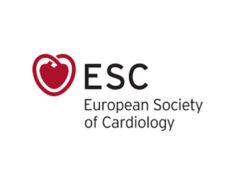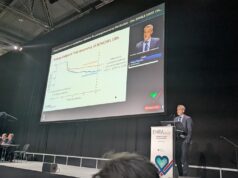On 14 May, UK’s National Institute for Health and Care Excellence (NICE) issued updated support for commissioners to help them work with clinicians and managers to commission high-quality, evidence-based anticoagulation therapy for adults across England.
The resource provides advice on commissioning for anticoagulation therapy for adults with atrial fibrillation (AF), venous thromboembolism (VTE) and other conditions such as prosthetic heart valves and cardiomyopathy.
The advice highlights that commissioners should ensure they are in line with recommendations from NICE technology appraisals for the novel oral anticoagulants rivaroxaban, dabigatran and apixaban for people with AF and rivaroxaban for people with VTE. It encourages commissioners to review current anticoagulation services in light of these recent NICE technology appraisals with a view to rationalising services for the monitoring of vitamin K antagonists, such as warfarin, over time.
The advice also supports the commissioning of anticoagulation therapy for people with deep vein thrombosis and pulmonary embolism in line with the NICE quality standard for the diagnosis and management of VTE.
A section on the safety and quality of anticoagulation provision reflects the fact that anticoagulants are one of the classes of medicines that most frequently cause preventable harm and admission to hospital. The advice highlights the aspects of high quality care for all people taking anticoagulation therapy. These include monitoring arrangements when required, integration with other services and the need to ensure that people prescribed anticoagulants are involved in decisions about their medication and are given high quality information about anticoagulation therapy.
Illustrated with service model examples, the support package will help commissioners towards achieving the outcomes set out in the NHS, Public Health and Adult Social Care Outcomes Frameworks, as well as achieving improvement areas in the Clinical Commissioning Group outcomes indicator set.
The advice suggests that there are up to 980,000 adults in England who may require anticoagulation therapy. This represents up to 2.4% or 2400 per 100,000 of the population aged 18 years or over. The duration of anticoagulant treatment varies according to a person’s diagnosis, from three months to lifelong for people with VTE, and lifelong for people with AF or prosthetic heart valves.
The support package also includes a commissioning and budgeting tool to help users determine the level of service that might be needed locally. It can be used to model desired future activity and capacity requirements. This includes the cost savings of reducing capacity in traditional vitamin K antagonist monitoring services as more people are prescribed the novel oral anticoagulants in a primary care setting, the cost impact of extending anticoagulation therapy to those people who currently do not receive treatment but should, and the cost impact of a change in the choice of drug used.
Gillian Leng, deputy chief executive and director of Health and Social Care at NICE said: “Anticoagulation therapy is a rapidly changing area of practice, driven in large part by the availability of the novel oral anticoagulants. Given the pace of change in this area it is not surprising that there is evidence that practice and services currently vary in quality and effectiveness across the country. In particular, evidence suggests that a large proportion of people with AF who need anticoagulation therapy are not receiving it. The fundamental premise of this Support for commissioning package is that effective commissioning for anticoagulation therapy in line with NICE guidance will improve outcomes for patients by increasing the number of people receiving safe and effective anticoagulation therapy. The support package offers a one-stop resource for commissioners to review current activity and plan future commissioning activity to meet local needs, using benchmarks that can be adjusted to reflect local circumstances, and to calculate resources needed.”
While the support for commissioning draws on existing NICE recommendations and the NICE quality standard for the management of VTE, it does not constitute formal NICE guidance and is intended as a tool to help the NHS improve patient care through effective commissioning.
NICE Support for commissioning: anticoagulation therapy is available on the NICE website at: NICE Support for commissioning: anticoagulation therapy












